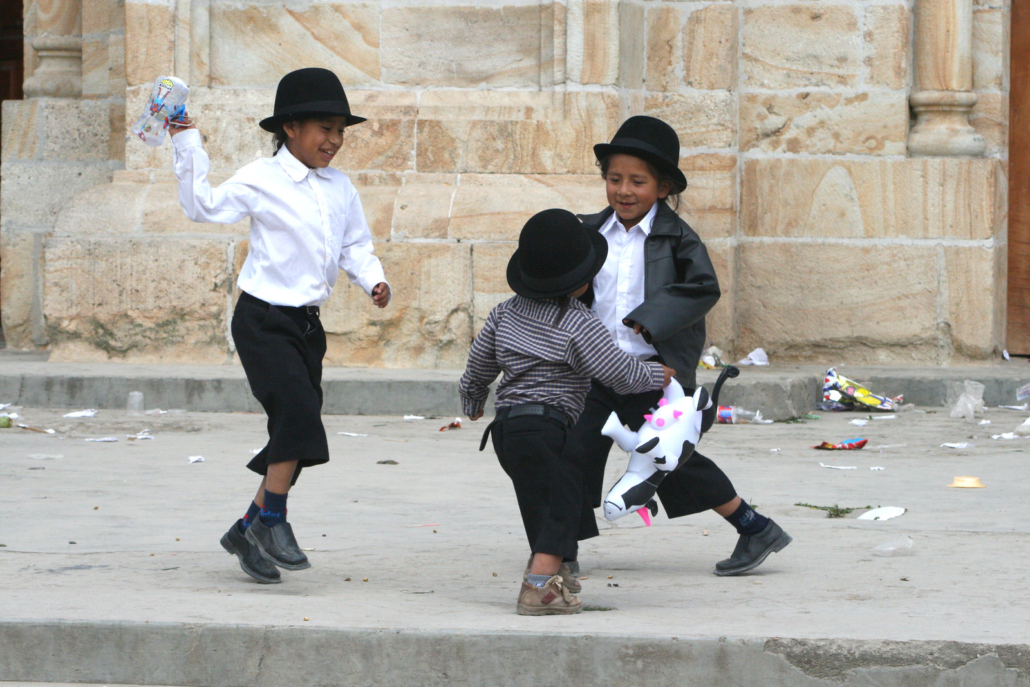5 Charities Operating in Ecuador


1. The Awaken Foundation
The Awaken Foundation, founded in 2016, is the first of the five charities operating in Ecuador. It strives to create a culture of hope and awareness in Ecuadorian communities. The organization has a broad range of initiatives supporting the development of communities through education, mental and physical health and more. Its Mushuk Pakari Program works to support children from low-income and conflictive families and keep them out of child labor. About 7% of children in Ecuador are subject to child labor, and the number of children subjected to the worst forms of child labor, such as sexual trafficking and dangerous mining, is alarming.
The Mushuk Pakari Program aims to provide children with two warm meals a day and moments of recreation and fun, where they have a chance to be kids. This program has been very successful in its endeavors. Of the 35 children registered in the program, 98% have reentered the educational system of Ecuador, and 100% are out of illegal child labor. The foundation hopes this program will grow to support many more children.
2. The COAGRO Foundation
Founded in 1998, the COAGRO Foundation is an organization dedicated to supporting the Andean communities of Northern Ecuador. In particular, they focus on women’s empowerment, recognizing their vital role in agriculture. Astonishingly, 61% of rural women in these communities work in the agricultural field; however, a staggering 86% of them do not receive pay. By working directly with the indigenous communities of the North, COAGRO can address these women’s unique needs and provide support.
The foundation collaborates with four different women’s associations, including ‘Sumak Sisa,’ a group of 23 women. COAGRO is actively enhancing the quality of their pastures, recognizing that growing new pastures and plants adapted to their cows will significantly improve milk production. This support not only empowers women but also enhances the financial prospects of the entire agricultural community.
3. Casa Búho
Casa Búho is a project that fosters reading initiatives and book-centered activities for children. Established in the fishing town of Machalilla in Manabí, Ecuador, its focus is on encouraging early literacy. It believes that children who have exposure to reading at an early age are more likely to develop into critical thinkers in adulthood. Casa Búho aims to ensure as many children as possible have access to books, empowering them through the transformative influence of literature.
Mi Tarde de Lectura (My Reading Afternoon) is the first program launched by Casa Búho. Collaborating with a cluster of schools in Machalilla, this initiative is tailored for elementary school children aged 6 to 12. The program has sessions that run after school and center around reading aloud to children.
4. Bee Farm Ecuador
Bee Farm Ecuador is an organization dedicated to conserving and protecting local bee populations. The bee farm is based in the Andes at the foot of El Corazon mountain. The farm is a place where families can gather and learn about the importance of beekeeping. Not only does the Bee Farm provide an eco-friendly area in which the bee population can thrive, but it also allows local communities to harvest honey without damaging hives. The farm also has educational projects for the well-being of indigenous women, which run all year round.
5. Ecuador Dice No Más
Ecuador Dice No Más (Ecuador Says No More) is an organization that is working in collaboration with UNICEF to combat sexual abuse against children. The campaign by the two organizations aims to encourage people to break their silence and unite communities to protect their children. They identified that the main problem when countering child abuse was that few speak out about their abuse. Of all the cases of sexual abuse, only 15% of them were declared.
The campaign has mobilized many Ecuadorian celebrities to speak about the cause and raise awareness. These include the singers Mirella Cesa and Karla Kanora. By mobilizing people in these ways, Ecuador Dice No Más hopes to significantly reduce the number of cases of sexual abuse against children.
Looking Ahead
These five charities operating in Ecuador are sparking meaningful change. From empowering women in Andean communities to promoting early literacy and combating child sexual abuse, these initiatives reflect diverse approaches to addressing crucial issues. As these charities carve paths for positive transformation, they underscore the collective effort needed for a better, more equal Ecuador.
– Haniya Rahman
Photo: Flickr
